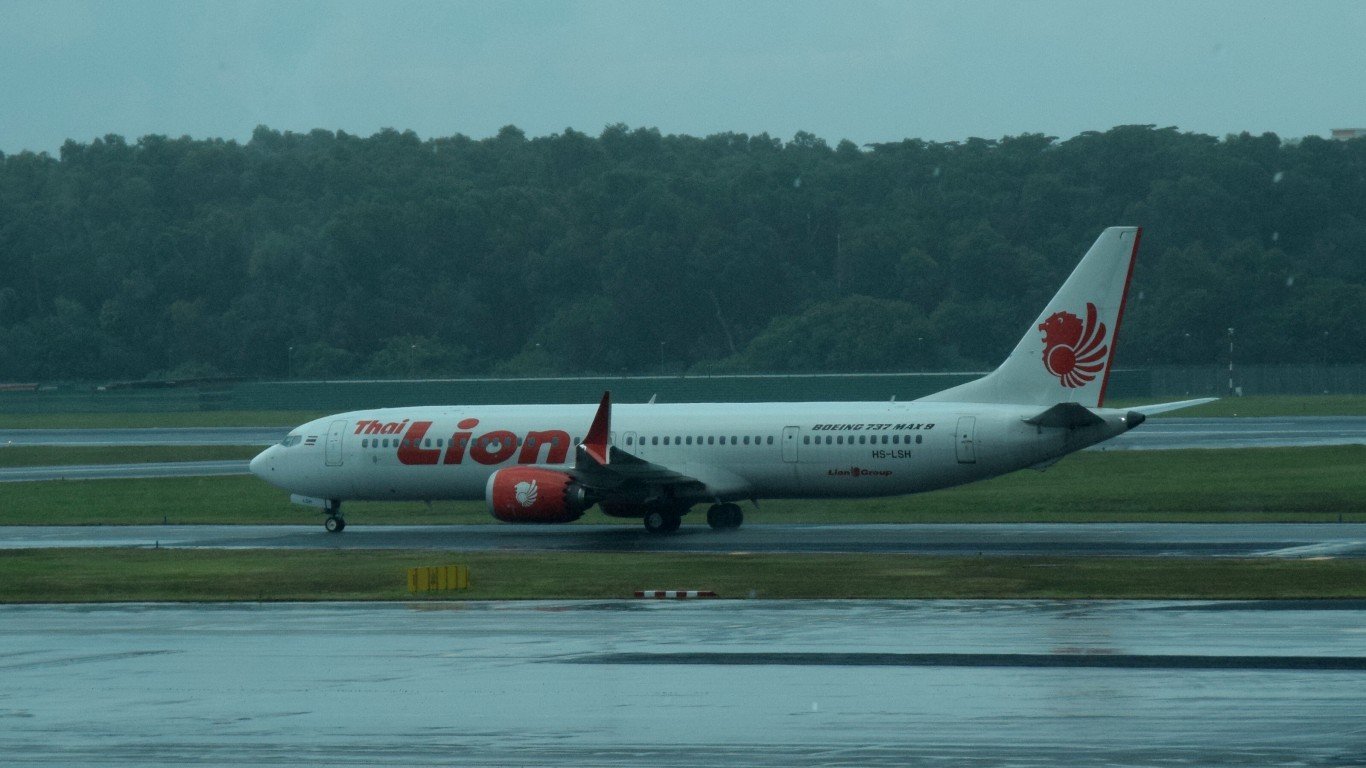

The U.S. Federal Aviation Administration (FAA) on Monday released its list of required design changes for Boeing Co. (NYSE: BA) to make to its 737 Max jet in order to get the plane back in the air after being grounded in March of 2019. The grounding followed two fatal crashes, one in Indonesia and the other in Ethiopia, that killed 346 people.
The notice of proposed rulemaking comes with a 45-day comment period that begins following publication of the notice in the Federal Register. The FAA’s list of required changes offered no major surprises but that does not mean the changes are trivial.
First, the 737 Max’s maneuvering characteristics augmentation systems (MCAS) will need to have new flight control software installed. Inadvertent activation of the MCAS was identified as a cause of the two fatal crashes. Boeing has been working on these fixes for at least a year.
Second, the aircraft’s angle of attack sensors will need new tests installed. Incorrect data from the sensors sent bad information to the flight control computer that incorrectly activated the MCAS. The FAA will insist that two sensors verify the data, not just one as in the earlier version of the aircraft. Updated angle of attack system and sensor data displays also will be installed.
Third, Boeing must update its flight manual to make clear which sensor data or system they need to deal with should an emergency occur.
Fourth, pilot training requirements will be updated. These were not addressed in the notice of proposed rulemaking but will come later.
The FAA’s European counterpart, the European Union Aviation Safety Agency will conduct its own flight tests of the 737 Max, tests that have been delayed due to the COVID-19 outbreak. The agency does not have a firm schedule for the airplane’s return to service in Europe.
None of this was unexpected. Boeing CEO David Calhoun has said he expects 737 Max deliveries to resume in the fourth quarter, a comment that some analysts interpreted to mean a return to service might not occur until next year. Whenever deliveries resume, what has become abundantly clear is that demand for the 737 Max has fallen sharply due to the pandemic and its lifespan likely has been shortened by the coronavirus.
Boeing stock traded up about 1.1% Tuesday in the noon hour, at $164.09, in a 52-week range of $89.00 to $391.00. The consensus 12-month price target on the stock is $175.77.
Sponsored: Find a Qualified Financial Advisor
Finding a qualified financial advisor doesn’t have to be hard. SmartAsset’s free tool matches you with up to 3 fiduciary financial advisors in your area in 5 minutes. Each advisor has been vetted by SmartAsset and is held to a fiduciary standard to act in your best interests. If you’re ready to be matched with local advisors that can help you achieve your financial goals, get started now.
Thank you for reading! Have some feedback for us?
Contact the 24/7 Wall St. editorial team.

